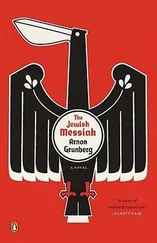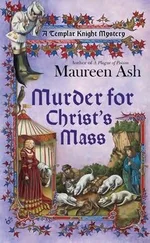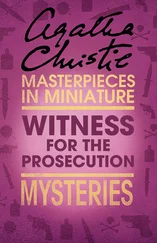Aaron Bernstein - Some Jewish Witnesses For Christ
Здесь есть возможность читать онлайн «Aaron Bernstein - Some Jewish Witnesses For Christ» — ознакомительный отрывок электронной книги совершенно бесплатно, а после прочтения отрывка купить полную версию. В некоторых случаях можно слушать аудио, скачать через торрент в формате fb2 и присутствует краткое содержание. Жанр: foreign_antique, foreign_prose, Биографии и Мемуары, на английском языке. Описание произведения, (предисловие) а так же отзывы посетителей доступны на портале библиотеки ЛибКат.
- Название:Some Jewish Witnesses For Christ
- Автор:
- Жанр:
- Год:неизвестен
- ISBN:нет данных
- Рейтинг книги:4 / 5. Голосов: 1
-
Избранное:Добавить в избранное
- Отзывы:
-
Ваша оценка:
- 80
- 1
- 2
- 3
- 4
- 5
Some Jewish Witnesses For Christ: краткое содержание, описание и аннотация
Предлагаем к чтению аннотацию, описание, краткое содержание или предисловие (зависит от того, что написал сам автор книги «Some Jewish Witnesses For Christ»). Если вы не нашли необходимую информацию о книге — напишите в комментариях, мы постараемся отыскать её.
Some Jewish Witnesses For Christ — читать онлайн ознакомительный отрывок
Ниже представлен текст книги, разбитый по страницам. Система сохранения места последней прочитанной страницы, позволяет с удобством читать онлайн бесплатно книгу «Some Jewish Witnesses For Christ», без необходимости каждый раз заново искать на чём Вы остановились. Поставьте закладку, и сможете в любой момент перейти на страницу, на которой закончили чтение.
Интервал:
Закладка:
Bernstein, Theodor. Though brief, the information of this convert is very interesting. He was baptized by the Rev. H. Stewart, in Liverpool, on the same day that his spiritual teacher, the missionary H. J. Joseph, was ordained to the ministry of the Church of England, in 1836.
Biesenthal, Dr. Joiachim Heinrich – or, to give him his birth-name, Raphael Hirsch – was born at Lobsens, in the Grand Duchy of Posen, on December 24th, 1804, of pious and strict Jewish parents. His early education was chiefly confined to the study of the national law and tradition; and through much self-denial and sacrifice on the part of his parents, who intended him for the rabbinate, he was able to have lessons from the best teachers and most learned Talmudist scholars of the day. He was what is called a Bachur ( lit . "young man"), a student of the Beth Hamidrash, who is intended for the study of the law. The Talmudical principle, "Know well what to answer an infidel," particularly moved his father to insist that he should join with the study of Talmud that of the Holy Scriptures and Jewish poetry. He soon found, however, that as regards his study of the Bible he was left to his own diligence and perseverance, for his teachers knew nothing at all about it; and, being imbued with the Talmudical warning – "Keep your children from the study of Holy Scripture," they were of opinion that it was not only a useless study and waste of time, but also a danger to one's piety.
In 1819, when Raphael was fifteen years of age, the town of Lobsens was destroyed by fire, by which his parents were ruined. His education, however, had to be completed, and so he entered the famous Jewish school of Rawitsch, where he received instruction from rabbis, and principally from Rabbi Herzfeld, of European renown. Deprived of every assistance from home, young Raphael had to struggle hard during his four year's residence there. On leaving Rawitsch he went to Mainz, where he received most kind care and support from the Rabbi of that city, Löb Ellinger, brother of the renowned Nathan Ellinger, or Nathan Bar Yospa, rabbi of Bingen, several of whose manuscripts are in the Bodleian.
The celebrated Heidenheim (Wolf Ben Samson) of Rödelheim, the greatest Jewish critic and grammarian after Ibn-Ezra and David Kimchi, helped him to the treasures of Jewish literature, lending him the best grammars in the Hebrew language, so that he was able to acquire, with great application on his part, a complete mastery of grammatical Hebrew. He next gave himself up to the study of German history, and Latin and Greek. His studies threw him into contact with the Rev. Dr. Klee, Roman Catholic Professor at Bonn, who gave him lessons in Hebrew, and introduced him to the Duchess of Coburg, the wife of General de Mensdorff, Governor of the fortress of Mainz. From her, and all the family, Raphael received many substantial proofs of kindness, and when he was about to leave Mainz, which he did in 1828, she gave him a considerable sum of money, and a letter written by herself to Baron de Rothschild, of Frankfort-on-the-Main, and graciously intimated that she would be glad to hear how he was getting on in life. Raphael found the Baron not inclined to assist him when he heard that he meant to finish his studies at Berlin, because he considered that a dangerous city, where all young Jewish students were being converted to Christianity . That there was great truth in this statement will appear lower down. "Keep away from a city where thousands become apostates!" were his parting words. Baron de Rothschild, however, sent him a letter of recommendation to Baron de Hägemann, the Chancellor. When Raphael delivered the letter, the not unnatural remark was, "What is the use of a recommendation for assistance from Rothschild! Why did he not help you himself?" So he was obliged to shift for himself at Berlin, and to earn his living by giving lessons. He employed his leisure time in study. In the year 1830 he resided for four weeks with a Christian family at Havelberg, where he learnt for the first time what true Christianity was, and he determined, as he said, to "search for Christian truth." In this purpose his intercourse with Christian divines greatly helped him. He studied theology and philology in the University of Berlin from 1828, taking his doctor's degree in 1835. He studied under the Oriental scholar, William Vatke, and his knowledge of the Hebrew grammar was greatly increased by personal friendly intercourse with Dr. Gesenius, the distinguished Hebrew scholar, at Halle. Raphael was baptized in 1836 by the Rev. Dr. Kuntze, taking the Christian names of Joiachim Heinrich and the surname of Biesenthal.
That there was a considerable truth in Baron de Rothschild's observation given above, is seen from the statistics of Jewish baptisms in those days.
Dr. Kuntze, who was a resident clergyman at Berlin, was instrumental in leading many young Jews to Christ. He baptized eighty in eight years (1829-36), whilst the Society's missionary, the Rev. W. Ayerst, baptized forty-two adult Jews in three years (1834-7). Altogether, 326 Jewish baptisms were registered in the Consistory at Berlin during the years 1830-37. A few years later (1844) the Rev. C. W. H. Pauli, the Society's missionary, reported that there were above 1,000 converts resident in Berlin; and in 1850, as many as 2,500. They filled all ranks and stations, and were to be found in all the ministerial departments, and in the university.
In 1844, Biesenthal placed his services at the disposal of the Society, and in doing so, wrote: "My Biblical studies led me, after much searching and wandering for a long time, to find Him of whom Moses and the Prophets did write. This result, this light which God caused to shine in my darkness, I deem it my unrelenting duty to communicate to others yet living in darkness, because the Lord Himself says that we should not put our light under a bushel. The Apostles, as well as all the Fathers, were furthered by the same disposition of mind. 'For where your treasure is, there will your heart be also,' says the Lord. If Christ be our treasure, our heart must be entirely and undividedly His own, and all our talents devoted to the glory of His kingdom. Becoming a missionary seems to me the surest way to fulfil Christ's commands. I have long considered it both a duty and a privilege to communicate to my brethren after the flesh the message of salvation, and to employ those talents which God has given me for their welfare. My predilection for the above has often seemed to be a token of God's will that I should shew my brethren from their very literature, as well as from the Bible, that the treasures of wisdom and knowledge are hid in Christ, and that we can only know the Father through Him. During the last three years I have acted upon this conviction, and embraced every opportunity to prove to my brethren that the Gospel of Christ is the power of God unto salvation, and my anxious desire now is to be enabled to devote all my time to this pursuit."
These earnest words are an echo of St. Paul's, "My heart's desire and prayer to God for Israel is, that they might be saved" (Rom. x. 1). With this spirit and aim, Biesenthal entered upon his long missionary career of 37 years in connexion with this Society – active laborious years spent in Berlin (1844-1868) and Leipzig (1868-1881). Eloquent in the Scriptures, with a perfect command of Hebrew and wide knowledge of Talmud and rabbinical literature, he was thoroughly furnished for his life's work. Those who knew him well believed that he had intellectual, literary and biblical qualifications in a most eminent degree, and that he was the best Hebrew scholar of their acquaintance. His knowledge of languages embraced – in addition to his native Polish – Hebrew, Latin, Greek, Syriac, Chaldee, Arabic, Ethiopic, Samaritan, French, German, Spanish, Italian and English. Never was missionary more highly gifted with "tongues" – his equal in this respect is not to be found in the ranks of the London Jews' Society; whilst with his pen he did even better service than with his lips in proclaiming "Jesus Christ and Him crucified" to his brethren after the flesh.
Читать дальшеИнтервал:
Закладка:
Похожие книги на «Some Jewish Witnesses For Christ»
Представляем Вашему вниманию похожие книги на «Some Jewish Witnesses For Christ» списком для выбора. Мы отобрали схожую по названию и смыслу литературу в надежде предоставить читателям больше вариантов отыскать новые, интересные, ещё непрочитанные произведения.
Обсуждение, отзывы о книге «Some Jewish Witnesses For Christ» и просто собственные мнения читателей. Оставьте ваши комментарии, напишите, что Вы думаете о произведении, его смысле или главных героях. Укажите что конкретно понравилось, а что нет, и почему Вы так считаете.












